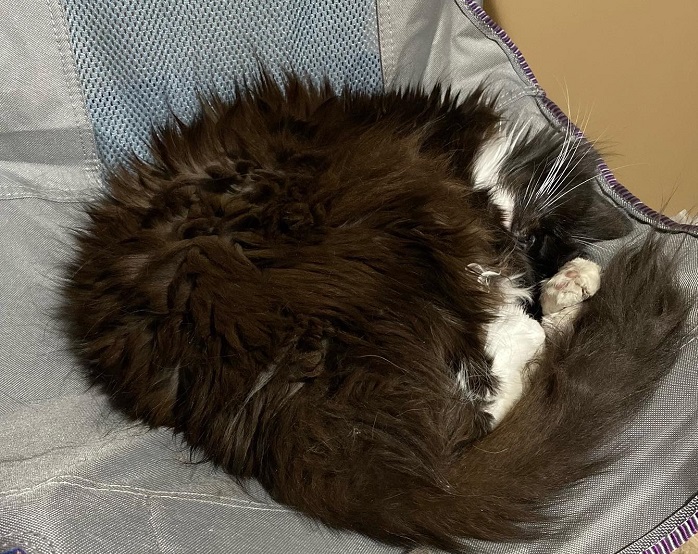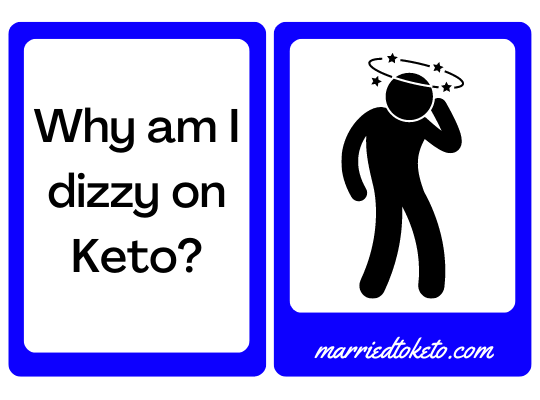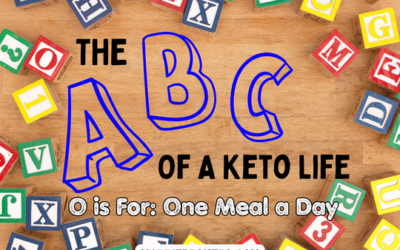When you start keto, your body goes through a lot of changes. It has to switch from burning glucose from carbs to burning fat. So, it’s no wonder that you have some side effects. When you first start keto, this is commonly referred to as the “keto flu.” It’s very common to feel dizzy on keto and have flu-like symptoms. But, I started feeling lightheaded a lot and I am two years into doing keto. What was going on? Was my body rejecting ketosis?
Feeling Dizzy on Keto
I first started feeling dizzy about 3 months ago. I’d get dizzy when I stood up. Everything would go black for a second, and I would close my eyes and wait for my body to adjust. Sometimes, I would even have to reach out and steady myself for a second. This happened a lot if I was squatting down and stood up from that position.
I could feel the keto naysayers judging me and could imagine the comments. “It was a only a matter of time.” “Keto isn’t natural. It’s not good for you.” I was starting to get a little frantic. Keto is not just a lifestyle for me, it’s a passion. Could it be true that I would have to stop eating keto?
I went to the doctor and got blood tests done. They checked for my thyroid and my cholesterol levels. To my incredible relief, everything came back on point. I take medication for hypothyroidism, but my thyroid levels were right where they should be. Likewise, my cholesterol levels were right in the middle. According to my bloodwork, everything was fine. That made me feel a lot more confident about my health, but I was still dizzy. I started doing some research.

I read an article on “Health Via Modern Nutrition” by Ryan Rodal on November 15, 2019. The article was called “Keto Electrolytes: Tips and Concerns.” When you are on keto, you release a lot less insulin into your body. Instead, it needs to get rid of ketones. Your kidneys remove the ketones through urination. More urination means you rid your body of more water and more electrolytes, particularly sodium.
Electrolytes to Help When Your Dizzy on Keto
Electrolytes are minerals in your body that help with things like cell function and organ function. They’re pretty important. If your sodium levels are off-balance, it throws the rest of the electrolytes off balance too. So, first thing I needed to do was to drink more water. Lots and lots of water. My dizziness was likely due to dehydration.
Next, I looked at a possible sodium deficiency. “No problem,” I thought, “I’ll just take a sodium supplement.” Guess what? They don’t sell sodium supplements in Canada. Why not? Because the average North American eats way too much sodium each and every day.
According to the Canadian Health website, we should not be eating any more than 2,300 milligrams of sodium a day. That’s about a teaspoon of straight salt. And yet, over 85% of Canadian men and 60-80% of Canadian women take in more than that. It’s not table salt that causes these numbers. Salt prolongs food shelf life and adds flavour to foods. It is in every packaged and processed food there is. One cup of Kraft Dinner has 670 mg of sodium. And truly, who eats just one cup of Kraft Dinner?
Foods to Help with Dizziness
So, when you give up the processed foods and you start eating whole foods on keto, your sodium levels dip. That throws off the other electrolytes, such as potassium, calcium, and magnesium. Many foods give you all of these electrolytes. Some really great sources of potassium and magnesium include:
- Avocado
- Spinach
- Almonds
- Artichokes.
I have also started taking the supplements of magnesium citrate and potassium citrate. Just be very careful when taking supplements, as many of them include carbs.
Things have been much better since I reassured myself that I was healthy and started drinking more water. Just this morning, I was cleaning the house at a pretty quick rate and was breaking a sweat. I started feeling lightheaded. So I made sure I was drinking lots of water. The dizziness went away and I continued my cleaning spree worry free!
Wendy





